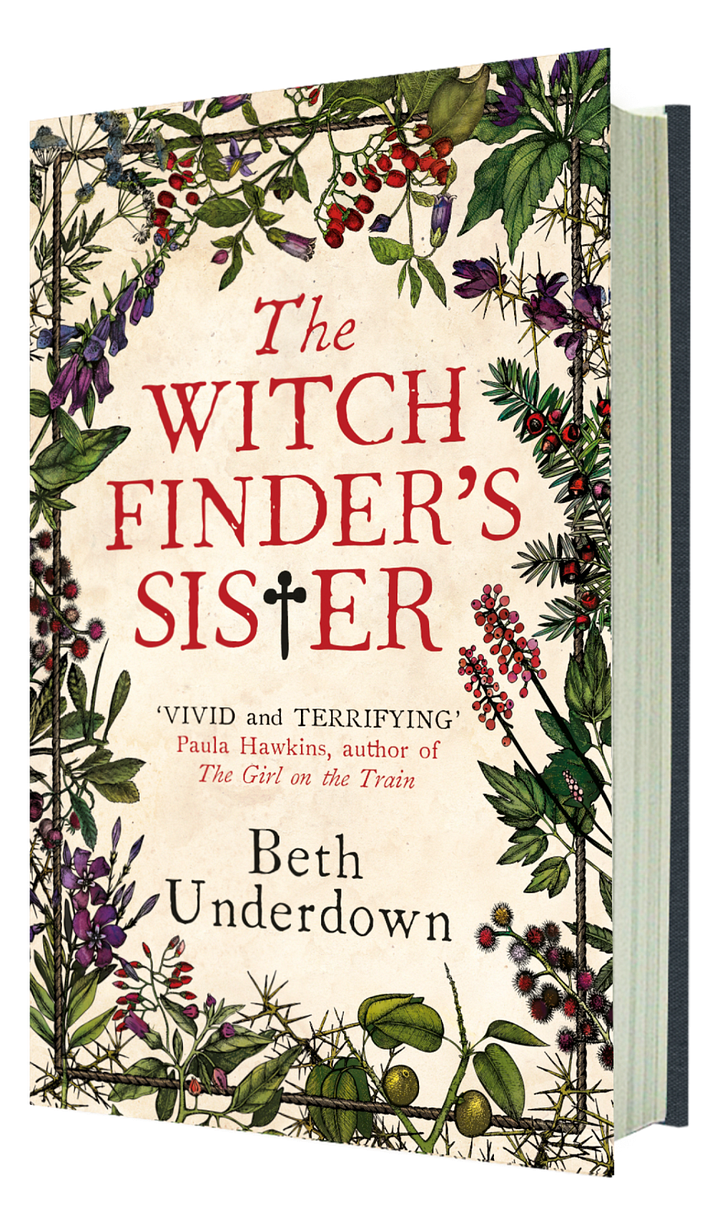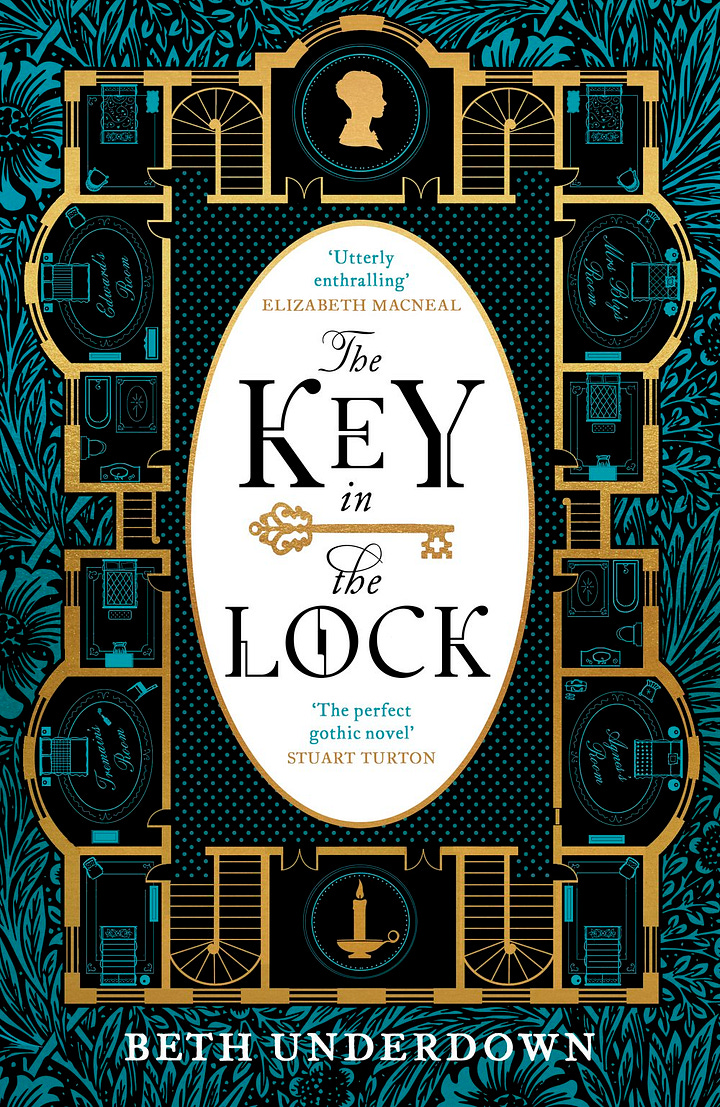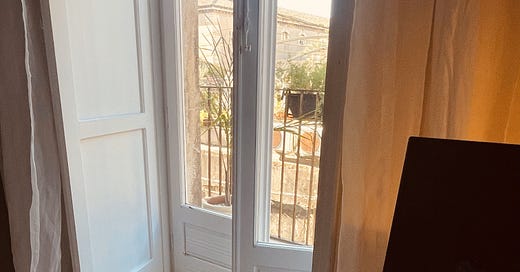Five Things I’ve Learned About Fiction Writing
My big takeaways from my first semester as a student again
Hello to all of you! Some of you have expressed a desire to hear about how my first semester in the MA in Creative Writing at the University of Manchester has gone.
The short answer is that it has been incredible! I learned so much more than I could have imagined. I threw myself into it, doing lots of extra reading and planning out a new novel I’m writing.
Another short answer is that it’s been exhausting! And I’m not crazy about the commute to Manchester from Edinburgh, which has at times been arduous. Who knew so many train journeys could be cancelled?! (More on that in another post.)
I’ve also met some very interesting people. Most are much younger and some are international students. I’m really enjoying learning about their different views of the world. There were students from China, Singapore, and Ukraine in my workshop, in addition to all over the UK, including Northern Ireland. And there are two other Americans who were in my seminar class.
This newsletter is free for all. Sign up so you won’t miss a post, if you haven’t already.
Here are some of the things I’ve learned in my first semester:
1. Writing fiction is completely different from studying and analyzing fiction.
So many people questioned my decision to go back to school to study fiction writing after a 20+-year career of teaching and writing about literature. But writing fiction and writing about it are completely different skills! While my analytical ability has helped me somewhat, I’ve found that I have had to learn just as much as the other students. And I’ve had writing habits that I need to lose.
The big difference between the novelist and the critic/literary scholar, I’ve realized, is that the latter looks at the story as a dead thing to pick apart and explain, while the writer tries to make their story live, which means getting the reader to turn the page . . . which ain’t easy . . . which leads to my next point.
2. Writing fiction is f---ing hard!
It feels like doing calculus sometimes. There are so many variables to consider—constantly. It’s not like you can focus on one element at a time, say, your narrator on one page and sensory details on the next. You have to think about all of the elements that make up fiction ALL the time:
setting, including details that ground the reader in the scene
backstory (how to bring it in artfully)
plot and structure (including rising action and turning points)
voice and style (making your writing sing)
dialogue (how to help the reader hear it)
characterization (the character’s lived experiences and how they have shaped their psychology—what they’ve repressed, how much they understand about themselves, etc.)
pace (when to slow down and when to speed up)
scene vs. summary (how to balance the two)
interiority (how to unobtrusively bring in character’s thoughts, feelings, memories, understanding)
sensory details in scene to evoke character’s emotions
emotional and physical stakes (making sure something real is at stake in every scene, externally and internally, ideally
reversals and surprises (keeping the reader interested by confounding their expectations)
chronology of story vs. events in real time (the most effective order to tell the story’s events in)
causality and consequence (making sure that each action and event grows out of the previous one)
conflict, creating tension and suspense (making sure your character is challenged, making the risk of failure real)
character’s anticipations (using what they think is going to happen to help the reader in sink into the story)
narrator (how close to the focalizing character, how much do they know, are they reliable?)
focalization (staying immersed in a character’s point of view, including how much they know at each point in the story)
character arc (how does the character evolve, where do they start and where do they end?)
narrative arc (how do things change, at the level of scene as well as the whole plot?)
overall theme of novel (what’s it all about, ultimately?)
what the character wants (more on this below)
You have to think about all of these 21 things on EVERY page!! I doubt this is an exhaustive list. But all of these came up in our workshop and reading this semester.
Now, tell me, do you feel exhausted just looking at that list? No wonder I’ve been so tired and having tension headaches as well as autoimmune symptoms. It’s a lot, isn’t it?!? But soooo interesting—and fun!
And way more difficult than writing about literature. To analyze is to divide the whole into its parts and examine each part closely, usually in isolation. But writing fiction is like that old game Pick-Up-Sticks. Did you ever play that? I loved it. If you recall, each time you try to pick up a stick from the jumble, others start to move. The trick is to pull one out without moving any others. That is absolutely impossible when writing fiction. All of these elements are all interwoven in a kind of bramble, a living version of pick-up-sticks, if you will, and way messier:
3. Imagination is a drug—a good kind.
I don’t know if it’s addictive or not, but I’m loving discovering where my mind will go if I give it room. It can be surprising sometimes what a character will say or what you think will come next. You can plan all you want ahead of time, but you have to leave space for inspiration and imagination to breathe life into your work. Not knowing what comes next or how exactly the next step of the plot will happen is exciting!
4. Actual people and historical events provide a very useful container for your creativity.
If you make up every detail of the story, then anything is possible, and the decisions and choices you have to make are overwhelming! But if you take a historical event with real people as the basis of your story, as I am doing, you know where it is going at least. Your job is only (ha!) to figure out how it will get there, and how your character will experience the road stops on the way.
This is one way that I have figured out how to make the novel I’m writing more manageable. This is my apprenticeship, so to speak, and you don’t start writing War and Peace out of the gate. I’m also telling only a small slice of the real story. I’m not writing a person’s whole life, but one episode, which spans almost two years). If I was writing a biography, I could cover more terrain, but fiction must get inside characters and make up scenes that require more space on the page.
5. Writing fiction is a lot like learning how to live all over again.
The things that have preoccupied me since I decided to remake my life are the same things that I need to make my fiction work.
CHANGE—Things must change! The story must take its main character from point A to point B, C, D, E, F, and G. In fact, each scene, ideally, should show some kind of change. While the narrator/character can stand still and observe and contemplate at times, you need to keep the story moving. Change must come for the story to live—because the nature of all life is change. That is a powerful lesson I learned first in my life. As you know, this newsletter is all about change!! The more we embrace change, the more fully we live. Same thing in fiction! If you want your story to feel alive on the page, a lot of change must be happening, all the time!
DESIRE—A character must want something. Their desire is what pulls them forward in space and time. Desire is the story’s engine. If they don’t want anything, then you’re writing a profile or a portrait—a static thing—not a story. This doesn’t mean characters get what they want. But it does mean that they will encounter changes that will move your story along. (I’ve written about the importance of desire—and how hard it is for women to know what they want—in an earlier post. See below. Figuring out what I want has been a huge part of my journey!)
EMOTIONS—What happens externally is only part of the story. The character’s reactions to events are perhaps even more important than the events themselves. (I’ve been learning a lot about reactivity, which I’ll write about at some point.) Emotions are what help readers care about a character. If we don’t get access to their feelings, then we can’t feel with them. This is the single most important part of fiction, to me. It was also what Constance Fenimore Woolson told Henry James when she asked him to give readers a heroine who loves, to show readers what was really going on inside her heart. “That is the touchstone to sympathy,” she said. That is the whole reason I want to write—to create connection. That is what makes writing, for me, a spiritual endeavor, an expression of my soul, not just an intellectual exercise. (Which encapsulates the whole reason why I left academia!)
Phew, that was a lot! I’ll leave you with a quote from Rachel Cusk:
Essentially, I think all the problems of writing are problems of living. And all the problems of creativity are problems of living. They are problems we all share.
I love that. It’s the biggest thing I learned this term—that my life, particularly the big changes and expanding consciousness of these past few years, has prepared me for this immense task of writing a novel. The living and the writing are two halves of the same coin. First live, then write, they say. I honestly don’t think I’d be ready to write the novel I want to write if I hadn’t lived these past few years.
As always, I’m dying to hear your thoughts. Have you been writing fiction? Did I miss something important on the list of elements that go into it? Does any of this resonate with your own experiences? Or, if you’re not writing fiction, what does all of this make you think about?
Until next week, happy reading and writing!
--Anne
P.S. If you enjoyed this post, please click on the heart at the bottom or the top of this email/post. It helps others discover Audacious Women, Creative Lives. And makes me super happy!
P.P.S. My workshop tutor this semester was the fabulous Beth Underdown. I was amazed at her insights and the supportive atmosphere she created in the classroom. She gave each of us rigorous feedback on how to improve, and she helped me find the subject as well as the shape for the novel I’m embarking on. I can’t say enough about what an amazing teacher she is. And a writer! Here are her two books:


RELATED POSTS
Life 2.0: Back to School at 55
It’s that time of year when many of us start something new or are turning over a new leaf (pun absolutely intended :). I certainly am. Here I am at 55 going back to school again—this time as a student! It’s equal parts scary and exciting.
Desire and the Woman Writer
Audacious Women, Creative Lives is a newsletter sharing inspiring stories of women writers and artists, as well as a community supporting and inspiring women to live bold creative lives.









Loved reading about your experience, Anne. I have written over 30 novels and I will say, it gets easier. Along the way you internalize all those points to be included and they spring from your subconscious. Which, by the way, is your best friend. Also, when I teach novel writing, I emphasize including three to five of those 21 elements in each scene. There is no way to include them all without getting twisted into yourself. Good luck with your novel 💙
Thank you for such a brilliant piece that totally sums up what I’ve come to learn about writing fiction. I’ve never written anything before, nor studied creative writing (my background is in the arts, with several academic qualifications in that field) and every one of the five things you listed hit the nail on the head for me.
I love it (writing a fiction novel), never contemplating I would do such a crazy thing or had the ability to even attempt such a thing. The excitement of the unknown about what is going to happen next in my book, the feeling of tapping into my imagination, surprising myself every time as to where this is coming from (a question I may never know the answer to), which it turns is teaching me so much about myself, but it is also the hardest thing I’ve ever tackled.
All your points are so real to me, and I wouldn’t trade it for doing any other kind of writing, academic, business, marketing etc., and I feel so grateful to have landed in this space at the age of 60+
A good place to be 😊